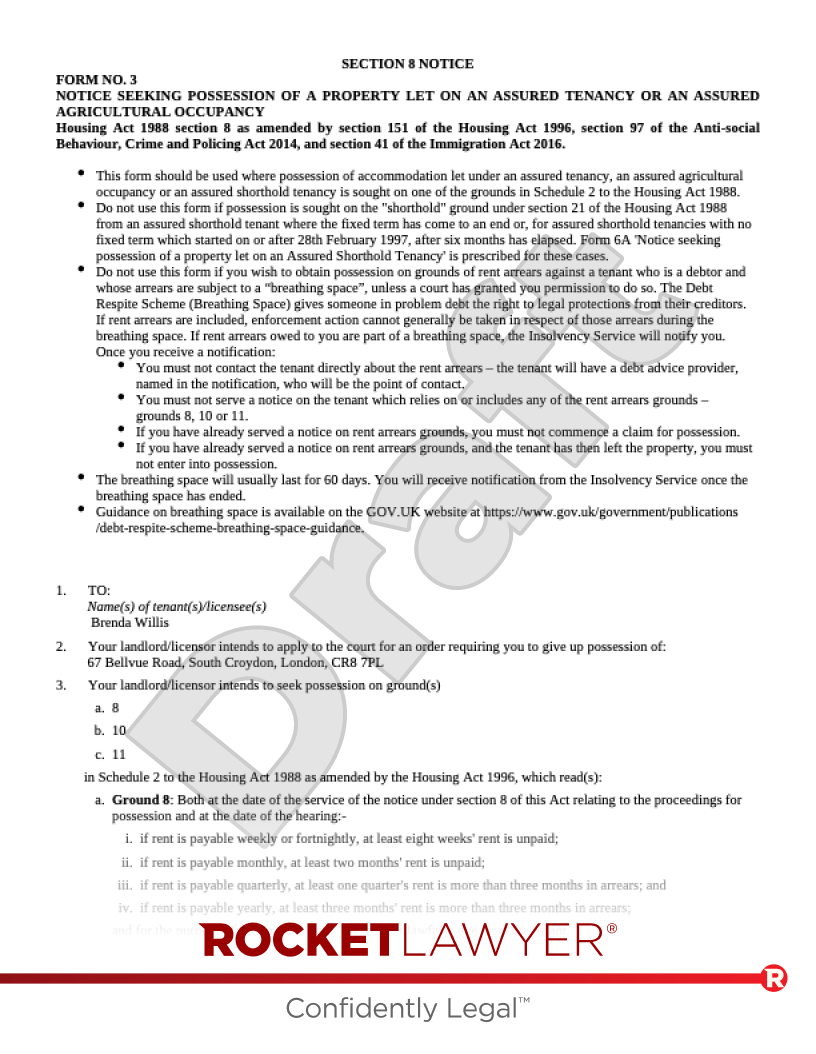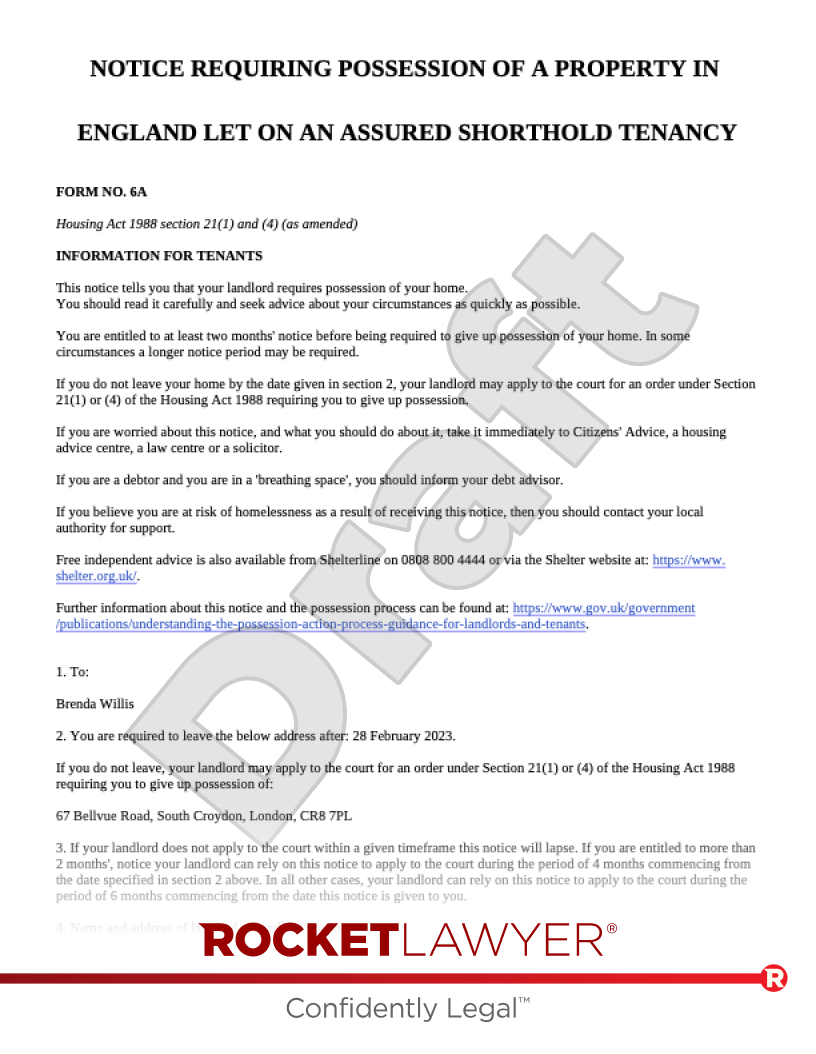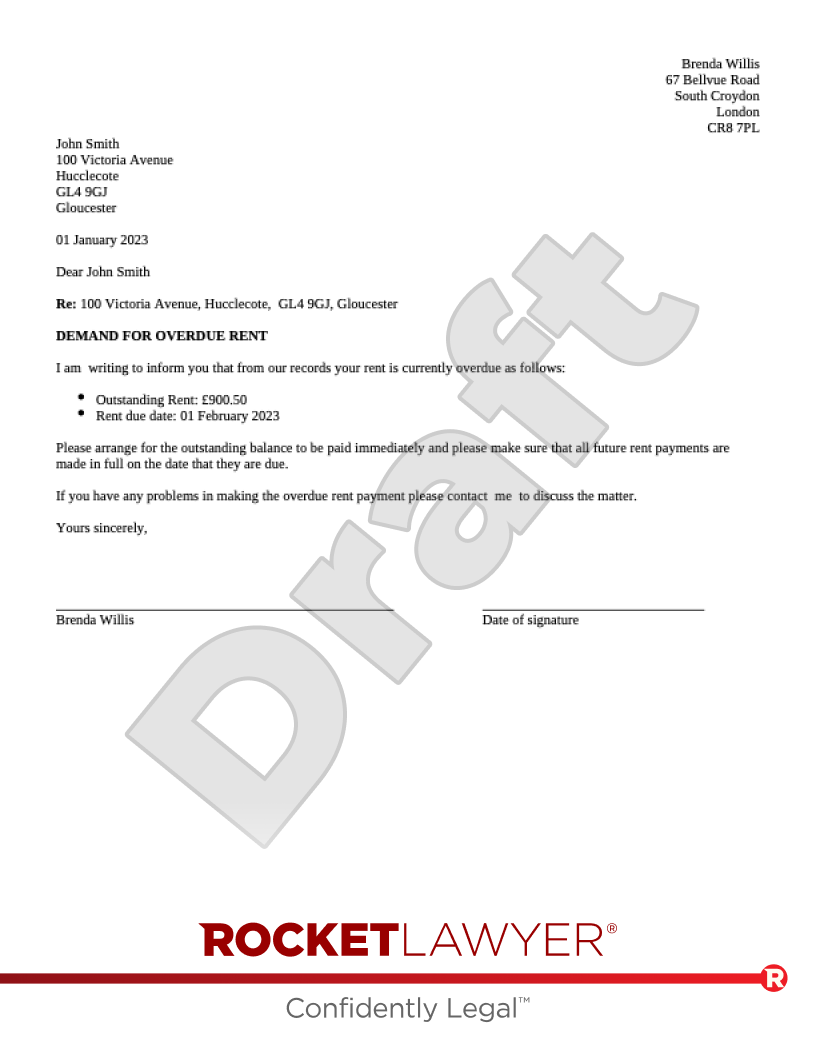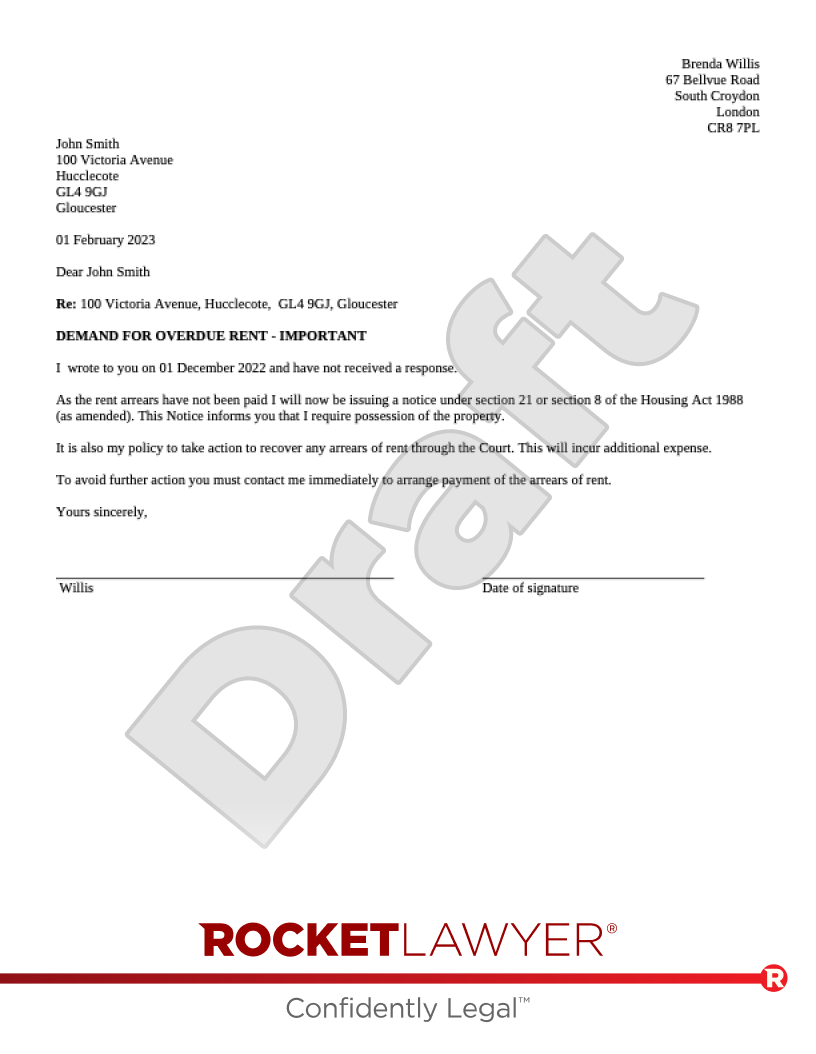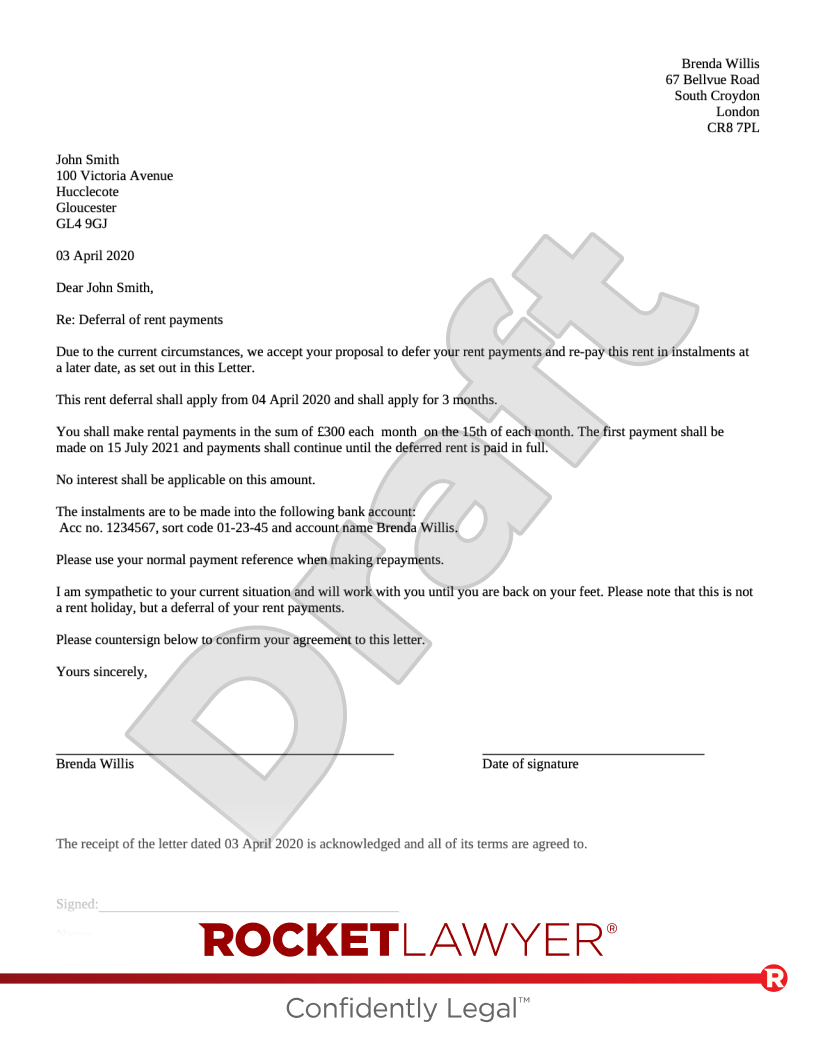Serving a tenant a Section 8 Notice does not itself end a tenancy. Correctly serving the Notice is an important first step in the eviction process but, after this, more must happen for a tenancy to end.
It is illegal for the landlord to try to evict the tenant without a court-issued possession order (eg by changing the locks or threatening the tenant). If a landlord does this, they may be subject to fines and/or imprisonment.
If a tenant receives a Section 8 Notice they should generally move out by the date specified in the Notice unless they intend to dispute the basis of the Notice. If they move out, this will end the tenancy.
However, if this doesn’t happen, to end the tenancy the landlord must:
A possession order can be sought through the courts. The process can be started by filing the relevant forms with the court. The landlord must wait until after the end of the notice period specified in the Section 8 Notice to start court proceedings. A landlord must start the legal proceedings within 12 months of the date of the Section 8 Notice.
If possession proceedings commence, the tenant may challenge the eviction if they believe the Section 8 Notice served wasn’t valid (eg it didn’t correctly name the tenant or didn’t explain the grounds on which it was being made). They can also challenge the proceedings with reasons why they shouldn’t leave the property. If the Section 8 Notice is based on a discretionary ground, the court will decide whether to grant a possession order based on what they consider reasonable in the circumstances. A possession order will usually give the tenant a specified amount of time to leave the property - often 14 days.
For more information on this process, read Repossession property - section 8 notices and Enforcement of possession orders.
The eviction process can be complex. For example, programmes like the Debt Respite Scheme (Breathing Space) are available to help individuals struggling to meet debts (eg their rent payments). Breathing space temporarily suspends evictions. You can Ask a lawyer for help navigating complex situations like this.




